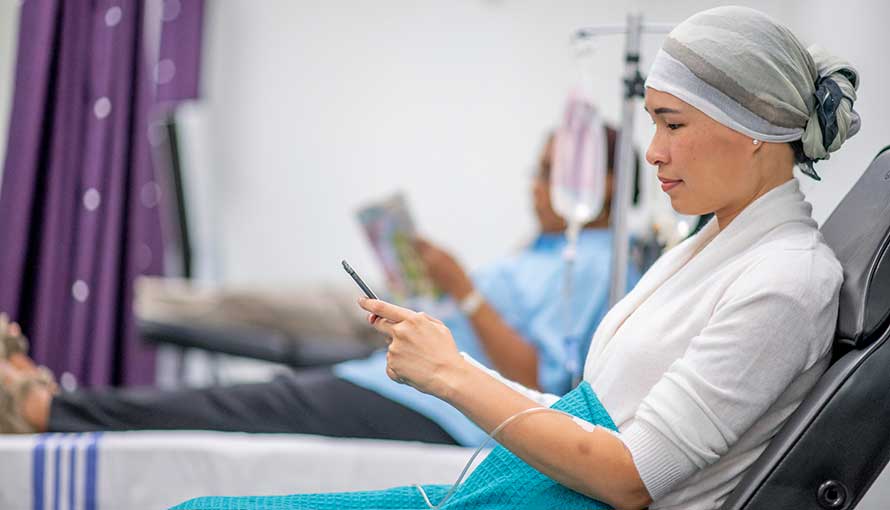What to Expect After Chemotherapy for Lung Cancer

Chemotherapy is commonly used to treat lung cancer, either on its own or in combination with other treatments, such as surgery and radiation therapy. Chemo medications work by targeting and destroying rapidly dividing cells. Because cancer cells tend to divide more quickly than most healthy cells, chemotherapy can be an effective treatment for many types of cancer. Additionally, unlike surgery and radiation therapy, which are localized treatments, chemotherapy is a systemic treatment. As such, powerful chemo medications can circulate throughout the body and potentially reach cancer cells that have spread beyond the lungs.
If your lung cancer treatment plan includes chemotherapy, you may find it helpful to learn what you might expect both during your treatment and afterward. Knowledge is powerful; in addition to easing some of your anxiety, it will help you feel more confident about the important journey that lies ahead. Of course, each person’s experience with chemotherapy is different, so your best source of information is always your physician, who is familiar with your unique circumstances and can provide you with personalized advice.
The treatment itself
Usually, chemotherapy is administered in cycles, which means you will most likely have some time off after each session to recover. Most chemo drugs are given as an infusion into an arm or chest vein (intravenously), but some can be given as an injection or taken orally in tablet or capsule form.
Intravenous chemotherapy is received in one of our infusion centers. Each session takes a few hours. Immediately beforehand, your physician will perform a physical exam to determine the appropriate medication dosage and ensure you are healthy enough to receive treatment. You will then rest comfortably while the medications drip into your vein. Afterward, the IV catheter will be removed and your physician will check your vital signs. You should drink plenty of fluids to help flush the chemo through your body, and carefully dispose of your waste to avoid exposing others to the medications.
How to prepare
Your physician will provide guidelines on what you can eat and drink before each chemo session and also explain the possible side effects. As you know, chemotherapy medications are designed to target rapidly dividing cells. But in addition to cancer cells, some healthy cells in your body are also constantly dividing, such as those in your hair follicles and bone marrow. As such, your treatment may affect those cells as well, leading to temporary side effects such as:
- Hair loss
- Nausea and vomiting
- Diarrhea or constipation
- Loss of appetite and weight loss
- Mouth sores
Your physician may suggest some medications that you can take to ease the potential side effects of your treatment.
When talking with your physician, be sure to ask about your treatment schedule so you can plan to take some time off from work or school, arrange for transportation to and from each chemo session and request help with child care and errands. Also, find out what will be available to you in our infusion center so you’ll know what you need to bring to stay as comfortable as possible. Remember to pack some activities to help you pass the time while you are receiving chemotherapy.
If you would like to learn more about what you can expect after chemotherapy for lung cancer, you can connect with a specialist in the Thoracic Oncology Program at Moffitt Cancer Center. To request an appointment, call 1-888-663-3488 or complete our new patient registration form online.
FAQs
- Signs and Symptoms
- Diagnosis
- Treatment
- FAQs
- Lung Cancer Early Detection Center
- Lung Cancer Screening and Surveillance Program
- Lung Nodules
- Lung Surveillance Clinic
- Metastatic Lung Cancer
- Recurrence
- Survival Rate
- Your Lung Cancer Specialists
- Lung and Thoracic Tumor Education (LATTE)
- Thoracic Clinic Updates
- Insurance & Financial Information
